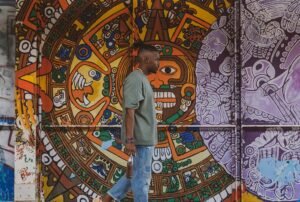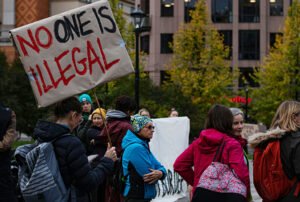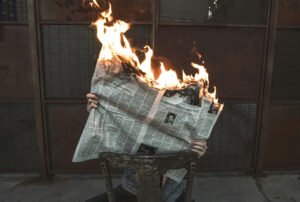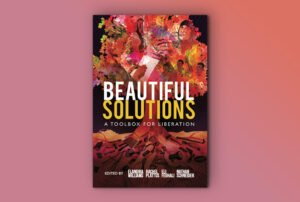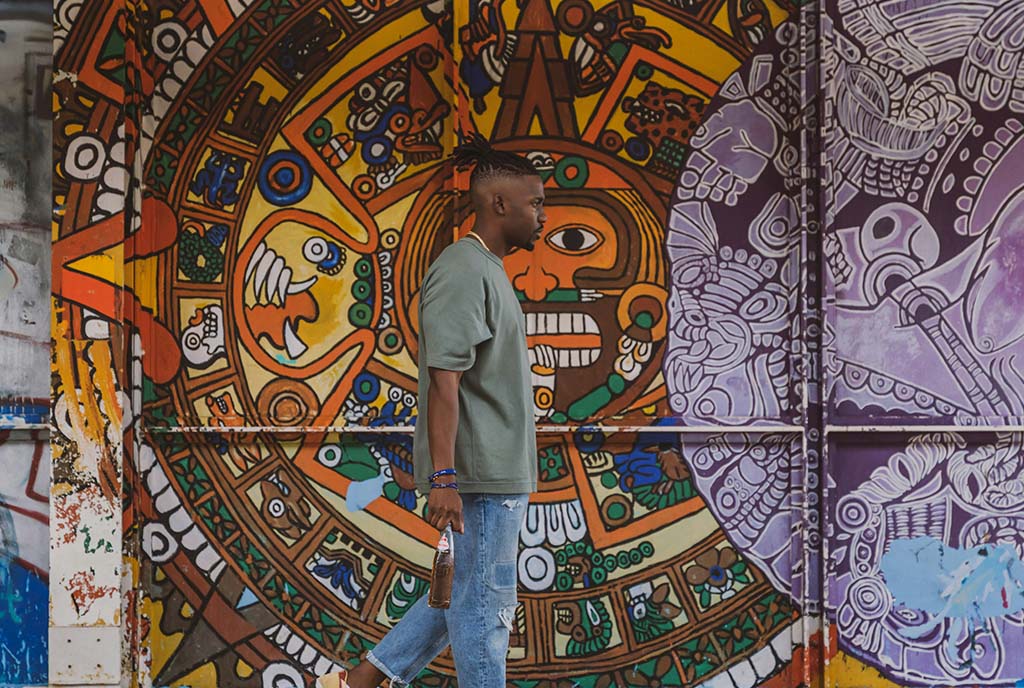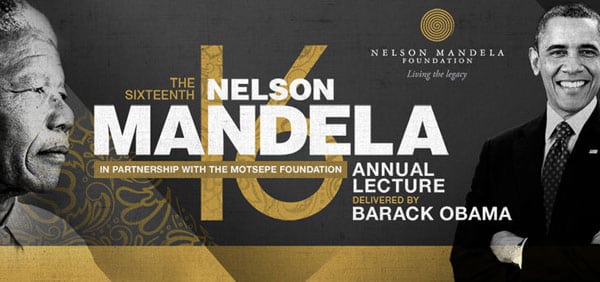
July 18, 2018; New Yorker
Last week, in front of a crowd of thousands, President Barack Obama delivered South Africa’s sixteenth annual Nelson Mandela lecture. This year’s lecture, which also marked the centennial of the birth of Mandela—also known as Madiba for his clan name—addressed the theme of “Renewing the Mandela Legacy and Promoting Active Citizenship in a Changing World.”
At NPQ, our guiding philosophy is that “an active, engaged, and sometimes disruptive civil sector is critical to a healthy democracy.” As NPQ’s Cyndi Suarez has noted, “As nonprofits, many of us understand that, though our daily work is often about addressing social challenges, our larger work is to strengthen civil society.”
So how does Obama view this challenge?
In his lecture, Obama is clear that civil society worldwide is getting weaker, not stronger. “A politics of fear and resentment and retrenchment…is now on the move,” Obama says.
Look around. Strongman politics are ascendant, suddenly, whereby elections and some pretense of democracy are maintained—the form of it—but those in power seek to undermine every institution or norm that gives democracy meaning.
As for what is driving these changes, Obama credits—or blames—what he labels “an explosion in economic inequality.”
It’s meant that a few dozen individuals control the same amount of wealth as the poorest half of humanity. That’s not an exaggeration; that’s a statistic. Think about that. In many middle-income and developing countries, new wealth has just tracked the old bad deal that people got, because it reinforced or even compounded existing patterns of inequality; the only difference is it created even greater opportunities for corruption on an epic scale. And for once solidly middle-class families in advanced economies like the United States, these trends have meant greater economic insecurity.
Sign up for our free newsletters
Subscribe to NPQ's newsletters to have our top stories delivered directly to your inbox.
By signing up, you agree to our privacy policy and terms of use, and to receive messages from NPQ and our partners.
For Obama, a critical challenge facing the world is the failure of “global decision-makers” to center corporate or government decisions in “human solidarity or a ground-level understanding of the consequences that will be felt by particular people in particular communities by the decisions that are made.” The children of the elite, Obama notes, “don’t suffer when cuts in public education and health care result as a consequence…of tax avoidance.”
What path to rebuilding civil society does Obama propose? Obama is vague on details. To the extent he mentions specifics, it often feels like he is advocating an “inclusive capitalism” that his own speech argues has been undermined by globalization.
To be fair, Obama does recognize the need for a “more fundamental reimagining of our social and political arrangements, to protect the economic security and the dignity that comes with a job.” This includes floating ideas like a guaranteed basic universal income and a shorter work week. More broadly, Obama outlines some core principles that might guide this reimagining:
- “First, Madiba shows those of us who believe in freedom and democracy we are going to have to fight harder to reduce inequality and promote lasting economic opportunity for all people.”
- “Second, Madiba teaches us that some principles really are universal, and the most important one is the principle that we are bound together by a common humanity, and that each individual has inherent dignity and worth.”
- “Third, Madiba reminds us that democracy is about more than just elections.”
Mandela, Obama adds, understood that democracy is “not just about who has the most votes. It’s also about the civic culture that we build that makes democracy work.” Such a civic culture, Obama elaborates, “means being in touch and in tune with life as it’s lived in our communities…and it depends upon cultivating leaders at the grassroots who can help bring about change and implement it on the ground and can tell leaders in fancy buildings this isn’t working down here.”
Citing “Madiba’s example of persistence and of hope,” as a final core principle, Obama calls on today’s youth to “keep believing, keep marching, keep building, keep raising your voice.”
Obama adds:
Every generation has the opportunity to remake the world. Mandela said, “Young people are capable, when aroused, of bringing down the towers of oppression and raising the banners of freedom.” Now is a good time to be aroused. Now is a good time to be fired up. And, for those of us who care about the legacy that we honor here today—about equality and dignity and democracy and solidarity and kindness, those of us who remain young at heart, if not in body—we have an obligation to help our youth succeed.
—Steve Dubb




